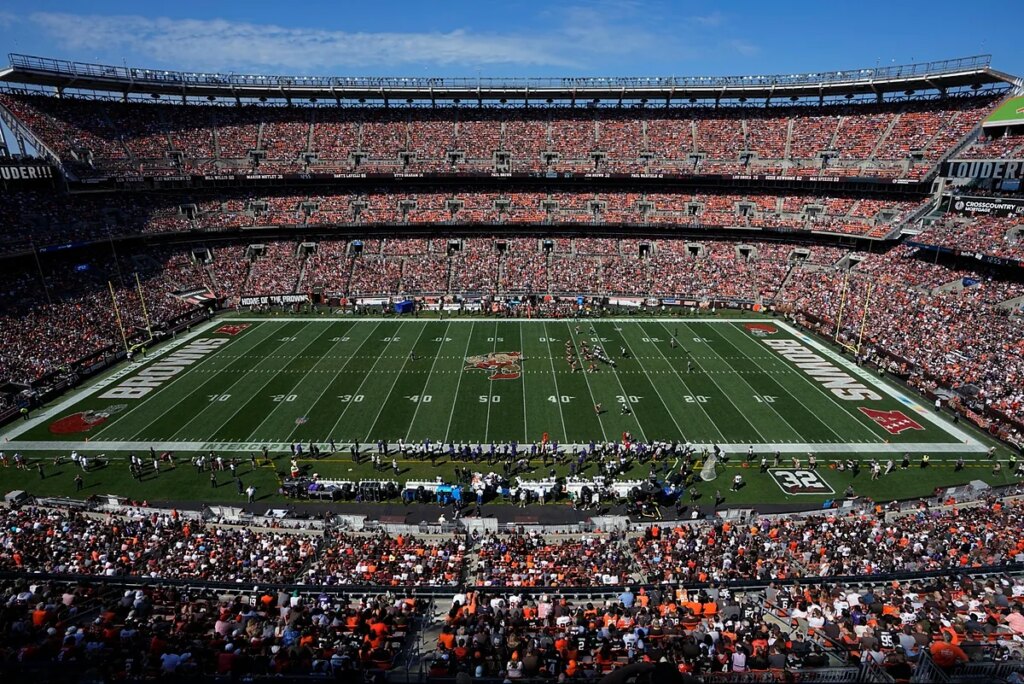Cleveland Mayor Justin Bibb has drawn sharp criticism from sports fans and local leaders alike after publicly downplaying the importance of the Cleveland Browns amid ongoing discussions over the team’s stadium future.
Bibb‘s comment, made during recent remarks on public priorities, sparked debate at a critical juncture for both the franchise and the city.
“There are more important priorities than the Cleveland Browns,” Bibb stated, referencing the city’s broader needs as negotiations continue over a proposed redevelopment of Cleveland Browns Stadium.
The NFL team had previously unveiled plans for a multibillion-dollar renovation that would transform the lakefront area while updating the aging stadium infrastructure.
Although the proposal was initially met with enthusiasm by team officials and some city stakeholders, Bibb’s remark has cast doubt on how much political will exists to support the project.
The Browns‘ lease at the current stadium runs through 2028, leaving a narrow window to finalize any new deal and keep the team anchored in Cleveland.
New quarterback hope, same old stadium questions
While tensions mount over stadium funding, the Browns‘ on-field direction has taken a fresh turn with the arrival of rookie quarterback Shedeur Sanders.
The former Colorado standout has impressed coaches during offseason activities and is in contention for the starting job heading into Week 1.
ESPN analyst Louis Riddick recently suggested that a Sanders-led offense is a real possibility-if the Browns provide him with the necessary reps to fairly compete.
“If he can compete with Dillon Gabriel, if he can compete with Joe Flacco, he can compete with Kenny Pickett, there’s a very good chance that if this is an organic competition with a level playing field, he could be your starter Week 1,” Riddick said.
Despite the optimism surrounding the quarterback room, the off-field uncertainty continues to dominate headlines. With Bibb‘s administration signaling that public funding for the stadium may not be a priority, some fans are beginning to question whether the team could consider relocation if an agreement isn’t reached in the coming years.
The Browns have already lived through a relocation once before-when the original franchise moved to Baltimore in 1996. Though the team returned in 1999, the trauma of that era remains fresh for many Clevelanders, making Bibb‘s dismissive tone even more contentious.
Whether Mayor Bibb‘s comment was a strategic effort to shift public focus to housing, infrastructure, or education-or simply a reflection of broader disinterest in stadium financing-it has clearly struck a nerve at a pivotal time for the franchise.
Between quarterback battles and stadium negotiations, the Browns face more than just challenges on the field this season. The team’s long-term relationship with Cleveland now hangs in a delicate balance.
Read the full article here

